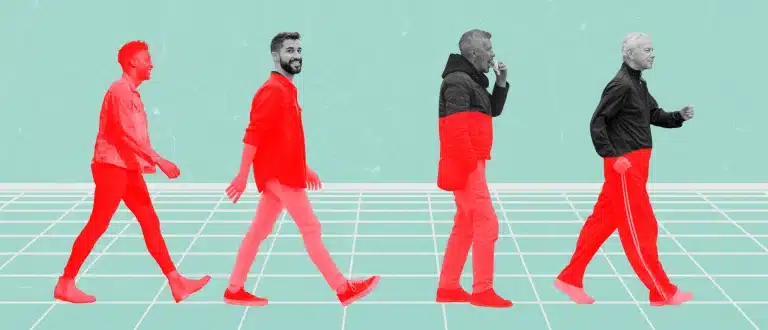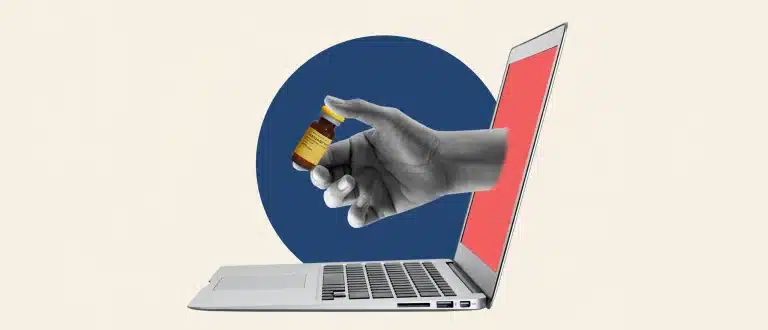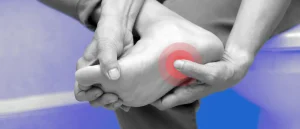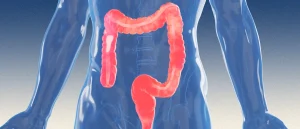This Link Between Thyroid Issues and Low T May Blow Your Mind
For being such a tiny size, the thyroid gland plays an outsized role in your health. From its position just below your Adam’s apple the butterfly-shaped gland can play a role in directing your mood, muscle growth, and even your sexual prowess.
That’s right—how well your thyroid performs may be directly tied to your performance between the sheets.
That’s because thyroid hormones affect the metabolism of sex hormones including testosterone. Having too much or too little thyroid hormone can impact T levels, which may lead to problems like erectile dysfunction, ejaculatory dysfunction, and decreased libido and sperm motility (1, 2).
Thyroid Issues in Men
Before getting too deep into the thyroid/testosterone link, it’s worth noting that thyroid problems in men crop up more often than you’d think. In fact, some experts say they’re very likely underdiagnosed.
Thyroid problems in men can often fly under the radar because the symptoms may be subtle and easily confused with other conditions. Weight gain can be related to a thyroid imbalance or too many wings and beer nights.
Like women, men with thyroid problems can be plagued with symptoms like fatigue, muscle weakness, and skin issues. But men with thyroid issues may also face unique symptoms—including erectile dysfunction, premature ejaculation, and decreased testosterone levels.
Your symptoms depend on whether you have hyperthyroidism (your body is cranking out too much thyroid hormone) or hypothyroidism (production has slowed to a trickle).
Hypothyroidism
When your thyroid gland creates less thyroid hormone than your body needs to function normally, your organs essentially slow down. You might feel tired, cold, or more forgetful. Your sex drive may become sluggish.
You may also notice hypothyroidism symptoms like:
- Shortness of breath
- Erectile dysfunction
- Premature ejaculation
- Dry skin, brittle hair, and nails
- High cholesterol
- Achy joints
- Muscle pain and weakness
- Weight gain
- Depression
Hyperthyroidism
When there’s excess circulating thyroid hormone in your body, processes tend to speed up, which can leave you feeling irritable, nervous, anxious, or any of the below.
- Excessive sweating
- Weight loss—even though your appetite may increase
- Sensitivity to heat and cold
- Rapid heartbeat (100+ beats a minute)
- Irregular or pounding heartbeat
- More frequent bowel movements
- An enlarged thyroid gland (goiter), which may appear as a swelling just below your Adam’s apple.
- Fatigue, muscle weakness
- Difficulty sleeping
- Thinning skin
- Brittle hair
Thyroid Issues at a Glance
- Thyroid hormones affect the metabolism of sex hormones
- Symptoms may be subtle and easily confused with other conditions
- Thyroid issues in men may cause erectile dysfunction, premature ejaculation, and decreased testosterone levels.
Low Testosterone
Like thyroid hormone, your body needs the right amount of testosterone to function at its best. Too much T may lead to lower sperm counts; raised cholesterol, which can up your risk for high blood pressure; cardiac events like heart attacks; and liver damage.
If your T levels are below where they should be for your age, you may be left feeling like you’re running on fumes, with symptoms like low energy, sleep issues, irritability, weight gain, and depression. No doubt you noticed that those symptoms are pretty similar to those found in men with thyroid problems, which can make diagnosing either issue tricky.
A slew of factors may lead to low T (typically anything below 300 ng/dL is considered low) like aging, genetics, and damage or disorders associated with certain organs, including your thyroid.
Low T and Hypothyroidism
To produce testosterone, the pituitary gland, which sits at the base of your brain, releases luteinizing hormone (LH) and follicle-stimulating hormone (FHS). LH triggers the testes to produce testosterone within cells called Leydig cells. The primary role of FSH is in the production of sperm, but it also helps maintain the concentration of testosterone in the testes. The T enters your blood stream and is circulated to the rest of your body.
A small percentage of that testosterone is free testosterone. Free T can go to work directly in your body to help you build muscle and regulate metabolism.
The rest, about 98% of it, is bound testosterone. Bound T is attached to proteins like albumin and sex hormone-binding globulin (SHBG) which shuttle it throughout your body to cells that require testosterone.
If your body doesn’t produce enough thyroid hormone, it can throw a wrench into this system. Men with hypothyroidism may have lower levels of SHBG (3). According to a study on thyroid and male infertility, hypothyroidism may lead to a decrease in SHBG and a decrease in total testosterone that can be delivered to your tissues and your body. Since it is all a feedback loop system, it becomes a vicious cycle of decreasing testosterone.
Checking your T levels is easy with Hone’s at-home assessment. You can knock it out before your AM coffee.
If you have low T, our physicians can help you feel your best again.
Low T and Hyperthyroidism
Having your thyroid hormone production in overdrive is associated with an increase in your body’s SHBG levels and an increase in bound testosterone, leaving less free testosterone to circulate in your body. In studies, it appears that hyperthyroidism adversely affects sperm production, which may lead to male infertility (3).
Your symptoms depend on whether you have hyperthyroidism or hypothyroidism
Treatment
So. You’re feeling tired, cranky, depressed, and are struggling with erectile dysfunction. Is it low T or a thyroid problem? Or low T caused by a thyroid problem?
The only way to know: schedule a visit with your doctor. Run through your symptoms and mention if you have a family history (in men or women) of low T or thyroid problems.
They may order some blood tests, including a testosterone test or thyroid level tests, or refer you to an endocrinologist.
If the root cause of your symptoms is low testosterone, your doctor may prescribe testosterone replacement therapy (TRT) to get your T levels back to within a normal range.
If a thyroid problem is causing your testosterone levels to drop though, your physician may decide you need supplemental thyroid hormone to get both your thyroid hormone and T levels back on track.
Hone’s at-home testosterone assessment today is the first step in treating low T.
References
1. Veronelli A, et al. (2006). Prevalence of erectile dysfunction in thyroid disorders: comparison with control subjects and with obese and diabetic patients.
2. Krassas GE, et al (2002). A prospective controlled study of the impact of hyperthyroidism on reproductive function in males.
3. http://clevelandclinic.org/ReproductiveResearchCenter/docs/agradoc400.pdf
















